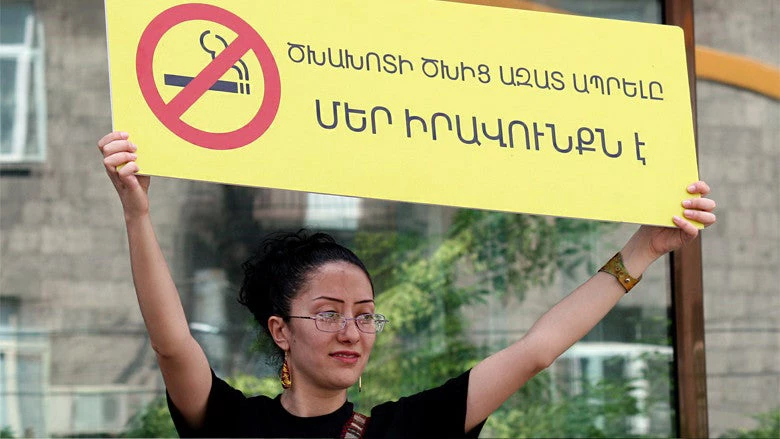
First confession: I am a seasoned smoker.
Next confession: I have long dreamed of adding “former” to that status. From time to time, my inner struggle reaches a crescendo, but then the momentum vanishes until the next wave of self-examination.
Smoking is the worst, if not the most stupid habit I have. I definitely understand that the damage caused to my health from smoking cannot be undone. I suspect my habit is a bit generational: my father was a smoker – until the doctors came up with a verdict – and the smell of smoke has been at home since my childhood. My son picked it up too, unfortunately. The only change between the generations is that my dad smoked at the table; these days we lean on the balcony.
My significant other isn’t a smoker, which has certainly helped me to be more considerate and to respect the presence of non-smokers!
My latest “wave” was triggered by my health-specialist colleagues here at the Bank, when they asked me to comment on a study about the potential effects of increasing taxes on tobacco in Armenia . They were looking for my insight from a communications perspective.
Frankly speaking, I have never been fond of scare stories, but … tobacco is the third largest risk factor in Armenia, after dietary risks and high blood pressure. It is also one of the leading causes of death, with almost 19% of deaths attributed to tobacco-related diseases such as lung cancer, stroke, cardiovascular disease. 32% of deaths among men are attributed to smoking.
Smoking prevalence in Armenia is high and largely concentrated among men – more than 53% of the male population are currently smokers. By contrast, about 2% of the female population smoke – the first optimistic data I have.
The second positive news is that smoking levels in Armenia have reduced over the last decade and a half. In 2000, 35% of the population smoked, while in 2015, that figure was 27%. I have no idea what was behind that trend, whether it was a concerted policy or otherwise, as nobody ever claimed the credit. I don’t recall any continuous anti-smoking campaigns, except well-performed anti-tobacco ads targeting youth.
The World Bank’s study estimated that if the average price of a pack of cigarettes were to increase by 45%, around 88,000 people in Armenia would not die prematurely due to tobacco-related illnesses. Around US$ 63 million out-of-pocket expenditures would be avoided, while the government would save up to US$ 26 million on health-care for tobacco-related diseases. And, around 22,000 people would not get pushed below the poverty line, due to reduced expenses on tobacco products and out-of-pocket expenses on health. It’s important to note, however, that this simulation assumes a time horizon of 50 years, given the long term persistence of tobacco policies.
So, there’s still a long way to go. And, although I have no doubt that it might lead to more optimistic data in terms of smoking trends in Armenia, I’d like to bring to the attention of the researchers the following observations by social experts…
They talk about the need to take into account externalities for some excise taxes. In particular, extending excises to coffee or perfume is having a progressive impact: a 1% increase in price leads to more than a 1% decrease in consumption. While revising excise tax rates for tobacco is of a regressive nature: a 1% increase in price leads to less than a 1% decrease in consumption – because of the addictive nature of tobacco. And the implication here is that the poor pay more compared to the rich. However, researchers have found that an increase in tobacco could be considered pro-poor, given the decreasing number of premature deaths, averted out-of-pocket costs, and government savings.

As a smoker, I might be biased. And my observation is that a poor person would suffer from any increase in taxes. However, a higher tax on cigarettes could lead to young people not starting the habit in the first place. I think this is the most convincing argument, especially when we consider that Armenia’s youth will be helping to build the future economy of our country.
We Armenians are a true clan-based people. Kinfolk ties are steadfast, with respect for family traditions outweighing all other regulations. That’s why I think that family-oriented communications and public awareness campaigns, in addition to the aforementioned measures, could have a real impact on smoking trends in this country.
Now, I think I’ll go get some fresh air …


Join the Conversation